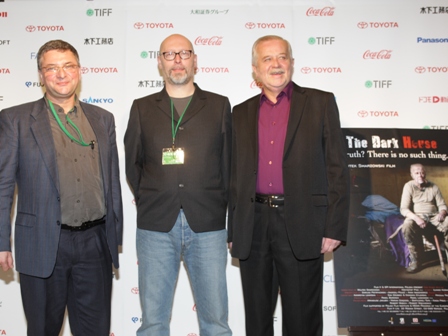2009.10.22[Special Contents]
Go Find a Psychic! : Oct. 20th (Tue), Arena Event & Stage Appearance

■Arena Event
■Stage Appearance
2009.10.22[Special Contents]
Yona Yona Penguin : Oct. 19th (Mon), Stage Appearance

2009.10.22[Special Contents]
MY RAINY DAYS : Oct. 19th (Mon), Stage Appearance

2009.10.22[Event Reports]
Alejandro González Iňárritu and juries share their thoughts on judging films for awards. – Competition Official Press Conference

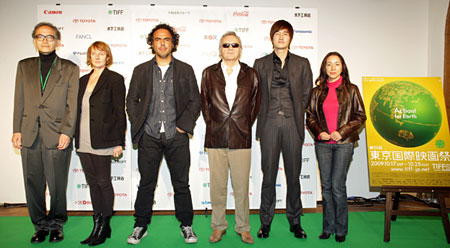
"I am honored to be chosen as the President of Jury for Competition section of the Tokyo International Film Festival and to be able to share the experience at the film festival with the wonderful members of the jury. Through the process of viewing the various genre of films such as experimental works, films by the young directors and films by the experienced directors; we would like to try our best, by believing in our five senses, to find the film that we could truly feel from our hearts to be a wonderful film that would bestow us the powerful surge of emotion,"spoke Director Alejandro González Iňárritu.
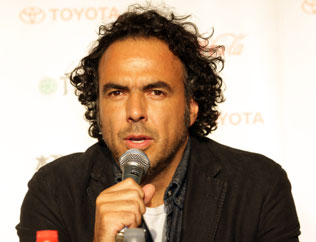
"This will be my first time to experience the film festival from the side of the jury rather than an actress. I felt so very happy with our jury lineup that I thought it would be kind of interesting to imagine if we were the cast for the film,” said Mieko Harada.
She also mentioned a comment about the Special Screening title,
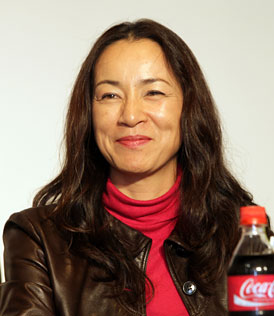
Director Jerzy Skolimowski said, “There was a film that I saw today with a scene where a cloud of smoke was pluming and I felt like I sort of inhaled the smoke…. I am sorry if I start coughing during the interview (hacking cough),” with a humor. He gave his sentiments about the change of circumstance from person being judged to the person who is judging. “I have absolutely no sense of discomfort because each time I make my film; it increases my chances of visiting to Japan possible! I would like to enter my film to TIFF next year too and make a visit to Japan again,” said Director Jerzy Skolimowski who made an appeal as a Japanese-enthusiast.

Caroline Champetier said, “I truly feel that the film is a living matter. Just after seeing the film, it gives me an impression that the “film is a good one”, but on the second day, it makes me feel “?” about it, and yet on the night of the third, the film remains strongly in my heart…. So in that sense, when I recognize a film to be a soul, it becomes difficult to grasp the truth about it. That is why I feel that a person must have a strong sense of commitment and view the film with their flesh and soul, using the entire body. ”She gave her serious thoughts about the film as a Director of Photography who made numerous masterpieces.

Yoo Ji Tae told us that, “While working on the film, I often felt that people are diverse and each one of them should be respected. That is why when we judge a film as juries, we should respect each ideas of the people who made the film, people who judge the film and the audiences. We should listen to what many people would say and learn and make our best efforts to judge while enjoying the film festival.”

Masamichi Matsumoto said, “I think it was most probably a first time in the history of the Tokyo International Film Festival that a person from the Cinémathèque has been chosen for the jury. For that reason, I feel that the new policy has been adopted to introduce the cinema's historic perspectives to TIFF. On a peronal note, I usually view many classic films. That is why I felt like I was thrown all of a sudden in to a stadium of modern films. But because I can comprehend the masterfully selected Competition film titles, I feel certain that I can make a firm judgment.” He showed us his self-assurance to judge the film through his original perspective.
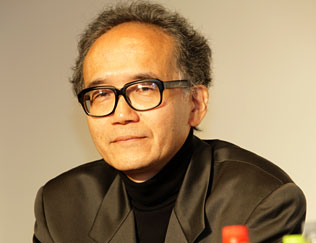
The respective awards including the Tokyo Sakura Grand Prix will be chosen by these six“Members of the International Competition Jury”and will be announced on Oct. 25th (Sun)!
2009.10.21[Updates]
Message from James DeMonaco, Director of Staten Island(Competition Section)
Oct. 21 (Wed) 21:20 (Door opens at 21:00)
Oct. 23 (Fri) 10:50 (Door opens at 10:20)
Ticket:
Oct. 23 (Fri) Walk-up tickets available at t-pia or at l-ticke.com (Purchse procedures in Japanese only)
Director’s Message:
As a native Staten Islander, I was always, even as a young boy, very well aware of my hometown’s unfavorable reputation. Often mocked, but even more often forgotten and neglected by most New Yorkers, Staten Island barely exists outside its own borders.
Staten Island is, by all accounts, the forsaken borough of New York, alone in this stature, a mistreated stepchild of its closest neighbor - the ever-present, ominous borough and centerpiece of not only New York but of all American life - Manhattan.
As any native Staten Islander can attest, Staten Island lives in the grand shadow of Manhattan’s wondrous, all-consuming skyline.
This can be a very dark, desperate place to live.
My objective as the writer and director of STATEN ISLAND was to capture the essence of the Island - or what I perceived as its essence - insignificance. And, ultimately, how the borough’s insignificance permeates and informs the people who populate this neglected place - as this sense of irrelevance informed my own life as a Native Staten Islander and affected how I viewed myself in society.
I chose to depict three Staten Island men battling this sometimes overwhelming feeling of insignificance - THE MOBSTER, as Staten Island has more mobsters than any other borough in New York and as I grew up living next door to several Staten Island Mob families; THE DELI WORKER, as Staten Island has more delicatessens than any other borough and as I worked in a local Staten Island deli in my youth; and THE SEPTIC TANK CLEANER, as the Island is the only borough still utilizing septic tanks as a means of waste removal.
Ultimately, the film’s depiction of these Staten Island men and their struggles, is, in the end, not specific to Staten Island and its occupants - but opens up beyond the borders of New York and essentially reflects upon greater themes of significance, ego, and self-worth, and how any individual in any society defines his or her place - and how incredibly varying these definitions can be.
My intent was not to depict STATEN ISLAND in an ultra-realistic manner - but instead to metaphorically define this unique, forgotten place and its people. The depiction was an amplified presentation, using humor, heightened drama, archetypal characters, crime noir elements, and even absurdity to portray the often desperate plight of these three men in their often misguided search for meaning and self - as my own desperate search for self and significance in the world was often melodramatic, humorous, criminal, and very very absurd.
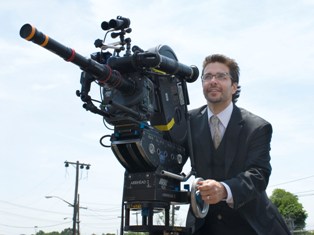
→ Read more
2009.10.21[Guests]
Competition section, ACACIA – Screening guest, Antonio Inoki has cancelled the stage appearance scheduled on 22nd (Thur).
 Competition section, ACACIA – Antonio Inoki who was scheduled for the stage appearance and greeting during the screening on Oct. 22nd (Thur) has been postponed.
Competition section, ACACIA – Antonio Inoki who was scheduled for the stage appearance and greeting during the screening on Oct. 22nd (Thur) has been postponed. Please be forewarned that Antonio Inoki will not be present.
2009.10.21[Event Reports]
On forefront of the fantastic horror film genre! Wailing in Hollow Valley + The Leper Girl: Oct. 19th (Mon) Talk Show
Wailing in Hollow Valley is a silent film shown in the projection speed of 18 frames per second. The Leper Girl is a talkie shown in 24 frames per second. Because of its projection requirements, there was a need to change the setting for the projector and we used the time to present the talk show.
The guest of the talk show was Riu Wenbing, the motion picture researcher who is also popular amongst the Asian film fans for his numerous literary works based upon uncompromising and well-documented research and also Kenji Ishizaka, the Programming Director of the Winds of Asia – Middle East.
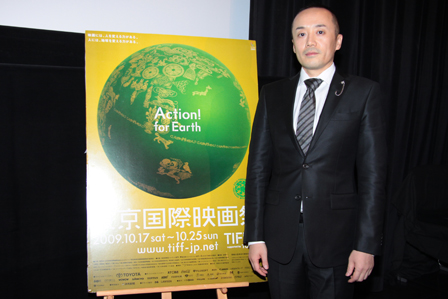
The topic of the talk show started with the film Wailing inHollow Valley which screened first, and Riu entertained us with the mini-episode, informing us about the actor who played the detective and stole the show was the Director Ma-Xu Weibang and continued to introduce the Director’s portfolio.
The Director Ma-Xu was born in 1901, his original name was Xu. He married into the Ma family later on and combined the two family names together and began calling himself Ma-Xu. Ma-Xu began working for the film industry in Shanghai in 1928. He began his career as Art Department staff and actor, but made his directorial debut in 1926. Wailing in Hollow Valley was the director’s 3rd film.
In later years, Director Ma-Xu became a leading figure in the Chinese Fantastic Horror Films. His best film is considered to be, Song at Midnight produced in 1937. The film was produced later as a remake, The Phantom Lover with Leslie Cheung in 1995. According to the Riu’s research, the Nationalist government’s film censorship and the influence that Manchurian Incident gave to the film industry was enormous, and even in the city of Shanghai which was the Entertainment Film Base of the East began gaining the momentum for the production of left wing films and the Anti-Japanese films. This was also the time when the wave of the talkie movies began. The style of the film making began to change throughout the world including the Director Ma-Xu’s style.
Wailing in Hollow Valley was a film produced in 1930, which was just before the Manchurian Incident and The Leper Girl was produced in 1939. It is quite interesting to view and experience the film by contemplating on such historical background.
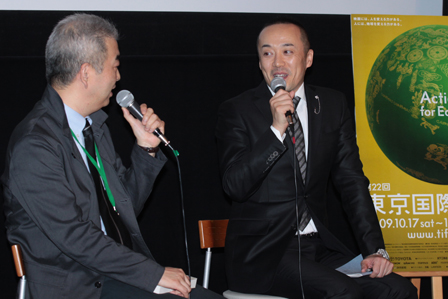
After the war, Ma-Xu moved his place of work to Hong Kong, but the low budget and short scheduled shooting was the way that Hong Kong operated. Ma-Xu’s style was to “take sufficient time to create a film” and Ma-Xu’s style was never accepted there. According to the history of the Chinese film, Ma-Xu Weibang has made numerous mediocre films during this period, which is quite an interesting information. Programming Director Kenji Ishizaka is very interested in selections of Ma-Xu Weibang’s films directed in Hong Kong. These films rare and aren’t even stored in the Film Archives in Beijing and Hong Kong. It is a very difficult task to recover these films, but the Program Director Kenji Ishizaka has received the information that the private film collector from Taiwan may own these films. May be we would be able to screen these selections in few years to come at the Tokyo International Film Festival.
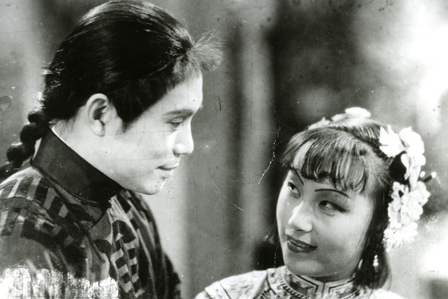
In addition, the Director Ma-Xu’s original style as a Director in "featuring the deformity" may have origined from the unfortunate experience he had in the childhood, says Riu. The leading actress of The Leper Girl, Tan In’s "Intense eye make-up" episode, and the Programming Director Ishizaka’s introduction on South East Asia and also variety of topics were introduced, but the talk show came to the end and The Leper Girl was screened after the 10 minutes intermission.
2009.10.20[Event Reports]
Japanophile! Winds of Asia – Middle East, Best of Times: Director Yongyoot Thongkongtoon’s Q&A: Oct.19th (Mon)

Winds of Asia – Middle East section, Best of Times is a film that depicts an upbeat love story about the two couples from different generations, one a young couple and the other an elder couple. The Q & A session was held after the screening. There were numerous guests who visited the venue regardless of the screening day being a weekday, which reflected the popularity of Director Yongyoot Thongkongtoon who catapulted to the fame with his comedy film, Iron Ladies, which depicted the gay volleyball team in Thailand.
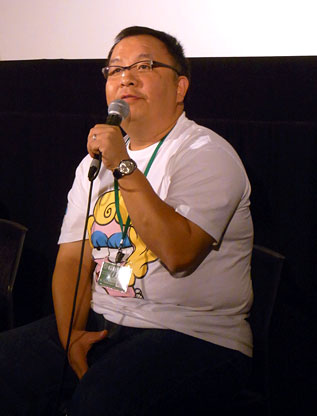
Following the greeting, the Director gave an explanation about his ideas on the film, “I based this work on a short film about the love affair of an old couple which was produced by my student in the film workshop which I was teaching. I also teamed up with three of my colleagues and made the story about the young couples as well. Also, I would be happy if you noticed it, but there is a message in the film about the memories as well,” the Director revealed to the audience.
When the reporter mentioned, “I understand that there is a problem about lack of scriptwriters in Thailand…” the Director replied,” It is true that there is a problem about the lack of scripwriters in Thailand. Even if writers wrote the script, it is difficult to make it into a film. There are various problems that hinder the scriptwriters here.”
“But luckily, I have a staff who understands me as well as respects me and who I can depend on as if depending on my wife. But unfortunately she isn’t my wife (laughs), just a reliable staff who can work as my wife.”
“She is truly a remarkable person and I hired her as a scriptwriter. Probably she is the only person who is a full time scriptwriter in Thailand now,” the Director commented.
“The distribution of Japanese films in Thailand has increased in past 3 years and currently ROOKIES is shown in the Thai theaters. Okuribito, "Departures" was also shown just recently,” mentioned the Director who knows a lot about Japanese animations, films and drama and is known to Japanophile. He explained to us that the chances of watching the Japanese films in Thailand has increased with a big smile on his face..
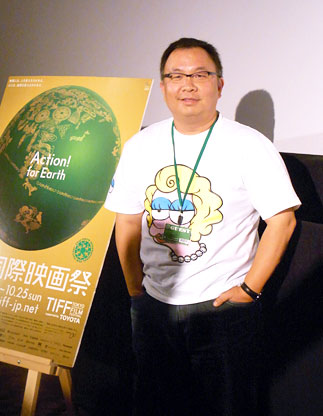
2009.10.20[Event Reports]
The eternal love definitely exists! Competition section, Heaven Eternal, Earth Everlasting: Oct. 19th (Mon) TIFF movie cafe Press Conference
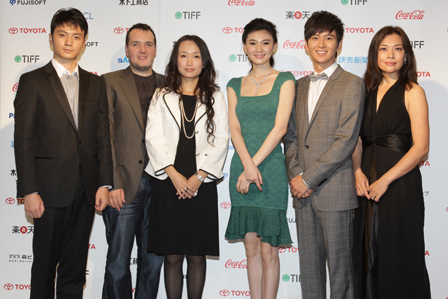
The Director Li Fangfang made her greeting in Japanese, “Hi. I am Fangfang. I’m looking forward to my stay here.”

Heaven Eternal, Earth Everlasting is an adolescence drama about the young people who are struggling to grow up, and have experienced the SARS panic. I depicted the details of the hospital scene in this film as precisely as possible. Back then, wherever you looked at, everybody was wearing masks. The film depicted the reality of that situation,” said Li Fangfang who says she made a thorough research to pursue the realism.
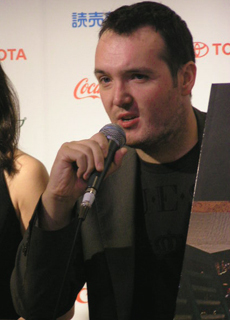
For Director Fangfang, this film was her feature debut. The Director of Photography Lyle Vincent who went to the same film school with the Director praised her by saying, “She had a clear view of what she wanted to do. There was nothing to worry about.”
Director Li Fangfang mentioned about the song by the late Leslie Cheung. “The lyric of the song is about the people’s loneliness and how they communicated and lived their lives. I was really sad when he died. I really wanted to use his song for my debut feature film,” she said as she recalled about Leslie Cheung. She also mentioned that she would like to have the composer of the song, Shinji Tanimura, to also view her film.
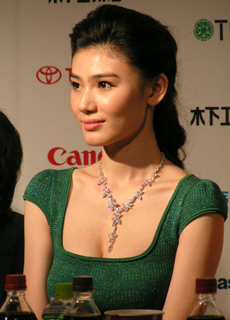
“Acting the wide range of age bracket was the most difficult thing for me,” says Liu Dong who acted a heroine in the film. “I had to play a part of a 13 years old girl in adolescence and also a woman close to the age 30 years old. It was definitely a big challenge for me.”

Huang Ming said, “Actually, we shot the summer scene during the winter.” He disclosed the episode during the production. People were all dressed up in winter clothes but we had to wear short sleeves and make our performance. There was a scene in which I was sprayed with the shower water. It was really cold! I was shivering quite badly. I thought that I wouldn’t be able to act but I was glad that somehow I made it through the shooting.
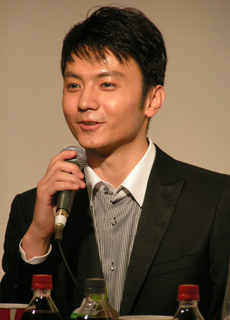
Chen Te who followed Ming also said, “Because we had to perform a summer scene in the coldest time of the winter; we had to act as if we were in the hot summer.” Working a hard shooting schedule in the extremely opposite season was a painstaking task for Chen Te and the cast.

Shi Ke is a veteran actress with a career of more than 20 years. “There were many things that I have learned from the young people in this shooting. I felt their strong passion for the film. I really believe this is a wonderful film with a pure heart.” Shi Ke made an appeal about the charm of the film.
To the question, “Does the eternal love exist?” The member of the cast replied in the unison. “It definitely exists. I believe in it.”
Shi Ke’s husband was also at the press conference. “It would be nice if our love will last for ever,” Shi Ke said with a smile and waved at her husband. The Press Conference was enveloped with their love.


2009.10.20[Event Reports]
Competition section, The Dark House: Oct. 19th (Mon) TIFF movie cafe Press Conference
Director Wojtek Smarzowski, Marian Dziedziel (Actor / Dziabas) and Feliks Pastusiak (Associate Producer) made their Stage Appearance and Greeting.
.
First of all, "I am honored to be a part of the Tokyo International Film Festival. I am curious about how the Japanese people will feel about it after viewing my film," mentioned Director Wojtek Smarzowski
"It's nice to be able to visit such a beautiful country," greeted Marian Dziedziel, who acts the part of Dziabas in the film. The Associate Producer of the film, Feliks Pastusiak followed his speach by giving his impression on his visit to Japan from Poland, "I am very happy to be able to participate in the film festival."
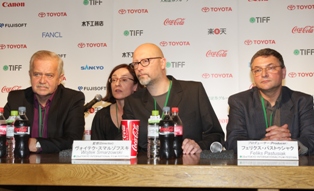
The Press Conference chose to proceed with a style of taking the questions from the press; the first question was about the two different years that intersected in the film. (1978 and 1982 in Poland)
.
The Director Smarzowski said, "This film was shot in the autumn (for the scene of the year 1978) and winter (for the scene of the year 1982). We shot the night scenes specificly for autumn and day scenes for the winter; that is why I think the sequences are simple to understand. I had an idea to collide the two seasons, the snow and the rain, the day and the night, the good and the evil in my film.
Regarding to the question from the press that asked what was Poland like during the year 1978 and 1982, which was the period setting for the film. The Director Smarzowski answered. "Poland in the year 1978 was at the end of the socialist era and everything that went during then was absurd. Purchase of alcohol was only allowed after 1 pm and the special permit was needed to purchase a car. 1982 was the worst year of all and the institution of the martial law was made then. Every purchase was made with the rationing system. There was nothing to distribute to the people, thus made the society absurd and made the people lose their hope.”
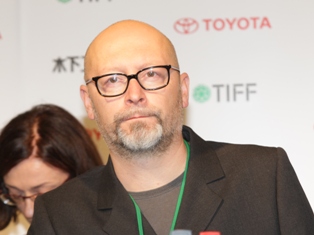
When the reporter who was born in 1982, asked him about the current situation in Poland, Director Smarzowski answered, “The order has returned to the country or it has returned to normal state. I think that the Poland is becoming a good country. You can’t really foretaste a man’s life, therefore I can’t compare what it would have been like, if I was born and raised in another country. I am glad that I was born in Poland.
Following is the answer to the question about the huge transformation that Marian Dziedziel shows at the later half of the film.
"The role making was a long process. It was eight years ago that I received the screenplay from the Director. We talked about various things with each other. It is always my goal to find a good thing about the character that I act, regardless of a type of role that I perform. I have concentrated my efforts in justifying the character of Dziabas as a human being. I think that the consequences that Dziabas meets at the end, is based on the notion that the situation he was incidentally placed was the reason which made him take his actions. Believing, loving and hoping is something that is important in the life. The Director mentioned that it was hopeless in Poland during 1982 but I believe Dziabas had hope in him. But the circumstance and the period that Dziabas was placed in made him do what he did and meet the horrible night,“ said Marian Dziedziel, who gave a very interesting speech following the Director,and the press conference came to an end.
Director Wojtek Smarzowski, Marian Dziedziel and Feliks Pastusiak proceeded to the Q&A session following the photo session.
